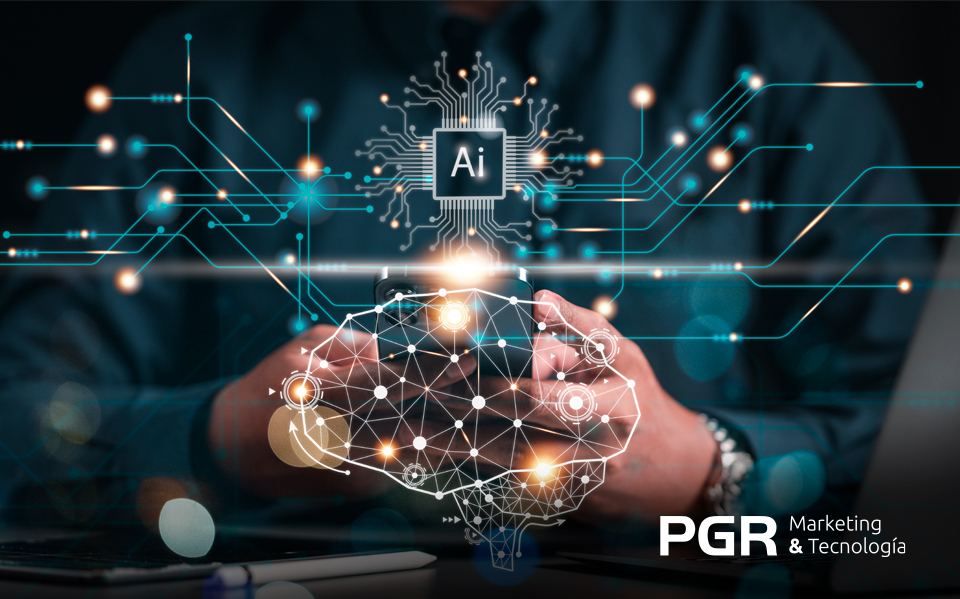AI is here to stay in our lives and it is a matter of years before we see the different types applied in a variety of fields and sectors .
In marketing, two types of AI of the four that have been projected so far are already being applied.
Current and future types of AI for marketing
Let's see, below, the types of AI that are already being applied in marketing and what in the not too distant future could be a reality in marketing departments.
1.- Reactive AI
Reactive AI is a memoryless system and is designed to perform a very specific task. By not remembering previous results or decisions, they only work with currently available data. Reactive AI has its origins in statistical mathematics and can analyze large amounts of data to produce a seemingly intelligent result.
An example of this AI applied to the marketing department is found in the product recommendations offered by some e-commerce based on users' previous purchases. Netflix Suggestions also uses this type of AI to suggest the next content to view.
2.- AI with limited memory
Unlike reactive AI , this form of AI can remember past events and outcomes and monitor specific objects or situations over time. AI with limited memory can use data from the past and present moment to decide the action that is most likely to help achieve the desired outcome. However, while AI with limited memory can use past data over a specific period of time, it cannot retain that data in a library of past experiences for use over an extended period of time. As it trains with more data, memory-limited AI can improve its performance.
In marketing, this AI is used to generate texts from scratch and is the basis of generative AI . Tools like ChatGPT , Gemini, or DeepAI rely on limited-memory AI capabilities to predict the next word, phrase, or visual element within the content you're generating.
3.- Theory of Mind in Artificial Intelligence
This type of AI remains primarily theoretical, but could enable AI to more closely emulate human relationships. By being able to understand human motives and reasoning, this AI could tailor its interactions with people based on their individual emotional needs and intentions. Additionally, this AI would also be able to understand and contextualize works of art and essays, something that current generative AI tools cannot do.
Artificial intelligence experts anticipate that this technology could have the ability to analyze voices, images and other types of data to recognize, simulate, monitor and appropriately respond to human emotions. This could provide significant marketing advantages by enabling the personalization of interactions with consumers based on their individual emotional states, potentially increasing the effectiveness of marketing strategies.
4.- Self-aware AI
This AI would have super AI capabilities , but, currently, it is strictly theoretical. If this breakthrough is one day achieved, AI would have the ability to understand its own internal conditions and characteristics, as well as human emotions and thoughts. In addition, you would develop your own emotions, needs and beliefs.
When developed, this AI would not only be able to understand human needs and emotions at a deep level, but would also be able to recognize its own capabilities and limitations. This means you could adapt marketing strategies more efficiently, anticipating and responding to consumers' emotional needs in a more authentic and effective way.
Do you want to start applying AI in marketing? At PGR Marketing & Technology we have experts who can help you achieve this.





